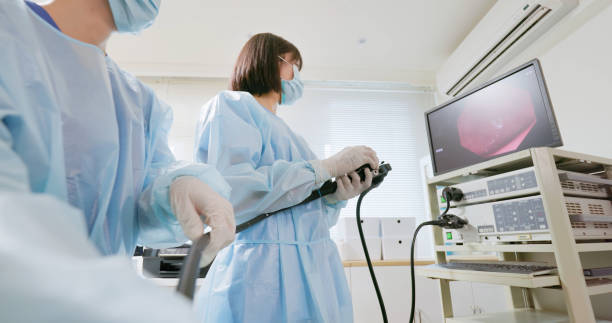
When a Routine Procedure Turns Dangerous
A colonoscopy is one of the most common diagnostic tools in modern medicine — a routine procedure performed thousands of times each day across Ohio. For most patients, it’s quick, safe, and essential for detecting conditions like colon cancer and polyps. But when something goes wrong, the results can be devastating.
One of the most serious complications is colon perforation — a tear in the wall of the colon that can lead to internal bleeding, infection, and life-threatening sepsis. While some perforations are recognized medical risks, others occur because of preventable medical negligence.
At Buckeye Law Group, we help patients understand when a perforation after colonoscopy is the result of medical error — and what legal steps they can take to seek justice.
How Colon Perforations Happen
A colon perforation can occur during various stages of a colonoscopy:
- Insertion or manipulation of the scope can puncture the intestinal wall.
- Excessive air or pressure may cause the colon to rupture.
- Removal of polyps using cautery or snare techniques can cause deep tissue burns or tears.
- Failure to identify or treat a perforation immediately can lead to life-threatening infection.
While the procedure carries some inherent risk, most perforations result from improper technique, lack of care, or failure to follow safety protocols.
Signs of a Perforation After Colonoscopy
If a perforation occurs, symptoms may appear within hours or days. Common warning signs include:
- Severe abdominal pain
- Fever and chills
- Nausea and vomiting
- Distended abdomen
- Rapid heart rate or low blood pressure
- Bloody stool or rectal bleeding
If these symptoms are ignored or misdiagnosed, patients can suffer from peritonitis, sepsis, or multi-organ failure — conditions that may become fatal without immediate treatment.
When Is It Considered Medical Negligence?
A perforation itself is not automatically malpractice — but negligence occurs when the doctor or medical team:
- Uses improper force or mishandles the endoscope
- Fails to follow accepted procedural standards
- Does not recognize symptoms of perforation during or after the procedure
- Delays emergency surgery or treatment
- Fails to properly inform patients about the risks and aftercare
When these lapses occur, the resulting harm is both preventable and actionable under Ohio medical malpractice law.
Proving Negligence in a Colonoscopy Injury Case
To prove negligence, your attorney must show that the healthcare provider failed to meet the accepted standard of care. This involves:
- Reviewing the medical records and operative reports
- Consulting expert gastroenterologists and surgeons
- Identifying deviations from standard colonoscopy practices
- Linking the negligence directly to the injury
At Buckeye Law Group, we have the resources and network of medical experts necessary to uncover what went wrong — and who is responsible.
Compensation for Victims of Medical Negligence
If negligence is proven, you may be entitled to compensation for:
- Medical expenses and future care
- Lost income or earning potential
- Pain and suffering
- Permanent disability or reduced quality of life
- Wrongful death damages for family members
Medical providers and hospitals must be held accountable when preventable injuries occur.
Get Legal Help from Buckeye Law Group
If you or a loved one suffered a colon perforation during a colonoscopy, don’t let the hospital or insurance company downplay the seriousness of your injury. You have rights — and our attorneys are ready to protect them.
Was the Bus Properly Maintained? Mechanical Failure Claims
When Neglected Maintenance Leads to Tragedy Buses transport thousands of Ohio residents daily—students, commuters, and travelers alike. Passengers trust that these large vehicles are inspected, maintained, and safe to operate.
Private vs. Public Bus Accidents: What’s the Difference in Legal Process?
Understanding the Two Types of Bus Accident Claims When a bus accident happens, one of the first and most important legal questions is who owns and operates the bus. Whether
Your Legal Rights After a Botched Colonoscopy
When Medical Errors Lead to Serious Complications A colonoscopy is meant to diagnose and prevent disease, not cause new harm. But when performed incorrectly, this routine medical test can leave
Perforation After Colonoscopy: A Sign of Negligence?
When a Routine Procedure Turns Dangerous A colonoscopy is one of the most common diagnostic tools in modern medicine — a routine procedure performed thousands of times each day across
Ohio Highways and the Rise of Commercial Truck Crashes
Why Truck Accidents Are Becoming More Common — and More Dangerous Ohio’s highways — from I-71 and I-77 to I-80 and I-90 — serve as major arteries for commercial trucking
How Federal Regulations Impact Your Truck Accident Lawsuit
Understanding the Rules That Govern the Trucking Industry When a semi-truck causes a serious crash, most victims don’t realize that the trucking company’s liability extends far beyond the driver’s actions.
Filing a Claim After a Catastrophic Medical Mistake
When “Human Error” Has Life-Altering Consequences Catastrophic medical mistakes can devastate patients and families. From amputations caused by surgical errors to brain injuries from oxygen loss, these events often result
How Hospitals Fail Patients in High-Risk Situations
When Every Second Counts, Negligence Isn’t an Option Hospitals are meant to be places of healing and safety, especially for patients in high-risk situations — such as those undergoing emergency
Heart Disease Misdiagnosis: When Doctors Fail to Act
The Silent Killer That Doctors Overlook Heart disease remains the leading cause of death in the United States, and early detection is often the key to survival. Yet, thousands of
Cardiology Errors That Lead to Catastrophic Consequences
When the Heart Is Mishandled: The Hidden Dangers of Cardiology Negligence Cardiology is one of the most critical areas of medicine—where every second and every decision can mean the difference
